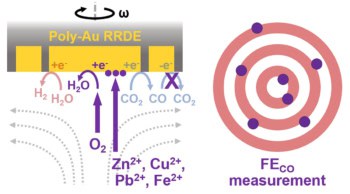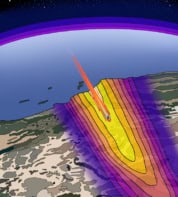Growing concern about climate change means that record-breaking temperatures are big news -- but is global warming making record-breaking events more common, or are they unrelated statistical fluctuations? The simple answer, according to physicists in the US, is that it depends on how long historical temperature data have been gathered for a specific locale. The analysis of temperature data from Prague and Philadelphia suggests that the effects of global warming become apparent after about 130 years of record keeping.
If Earth’s atmosphere was not warming, statistics predicts that the incidence of record-breaking hot and cold days would decrease as time progressed, being inversely proportional to the time that has elapsed since records began. While common sense dictates that global warming should lead to more record-breaking hot days, little is known about how warming affects record-breaking events.
Sid Redner of Boston University and Mark Petersen of Los Alamos National Laboratory have addressed this gap in the knowledge. They calculated that if the average daily temperature rises at a constant rate, inverse proportionality will dominate at first. However, the effects of global warming will begin to win out with time and when this occurs the probability of record-breaking will stop falling and approach a constant value (Phys Rev E 74 061114).
Redner and Petersen then set about looking for this effect in climate data. This crossover from statistical variation to a global-warming constant was not observed in the first set of data analysed by the physicists — 126 years worth of temperature data for Philadelphia, US. Undeterred, the researchers then focussed on a much longer set of data from the Czech capital Prague, which covers 231 years. Redner told Physics Web that a preliminary analysis reveals that the probability of having a record-breaking day in Prague appears to approach a constant value after about 130 years. This suggests that global warming is affecting the number of record-breaking days in Prague — and that this effect may soon become apparent in Philadelphia and other locales with records covering about 130 years or more.



